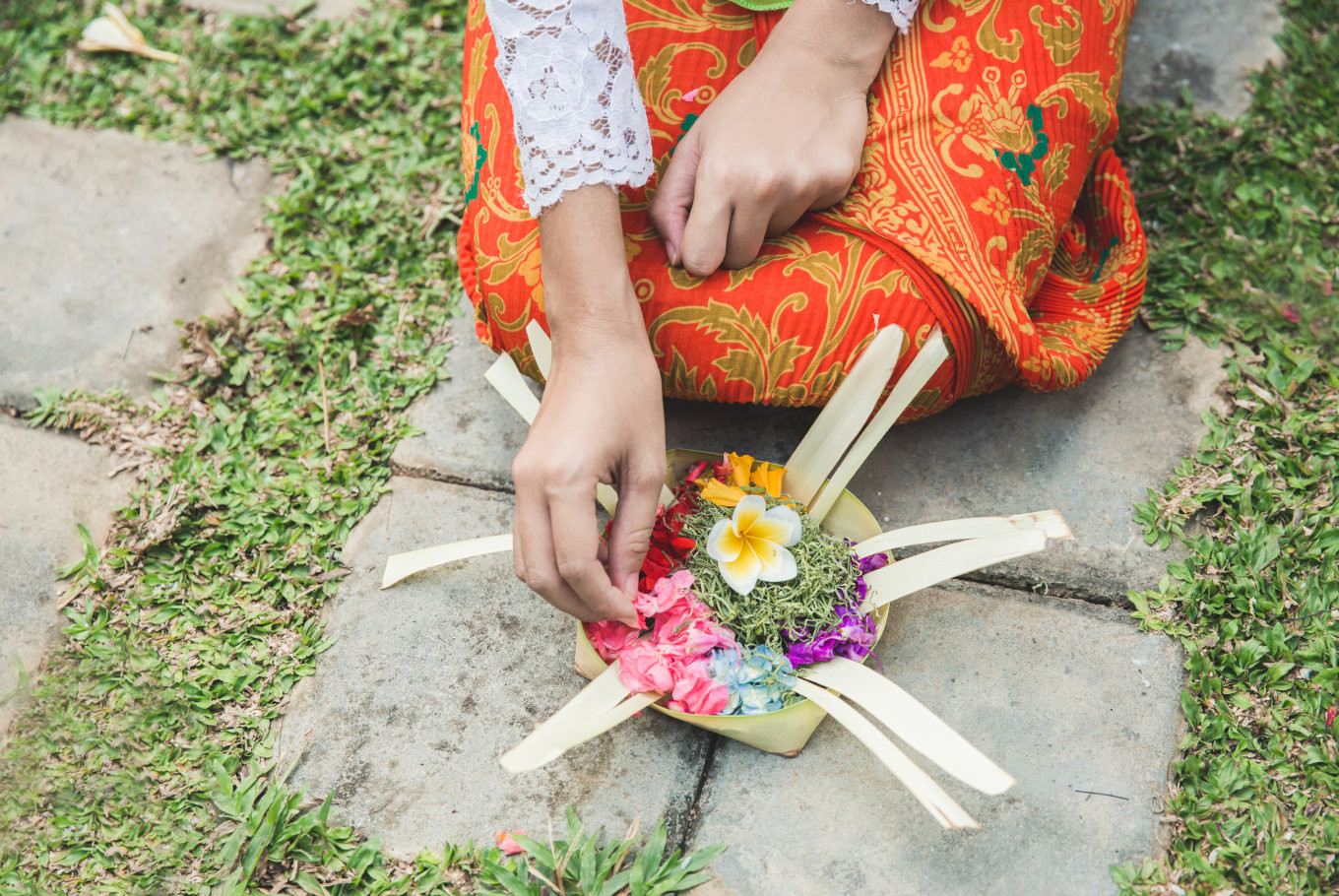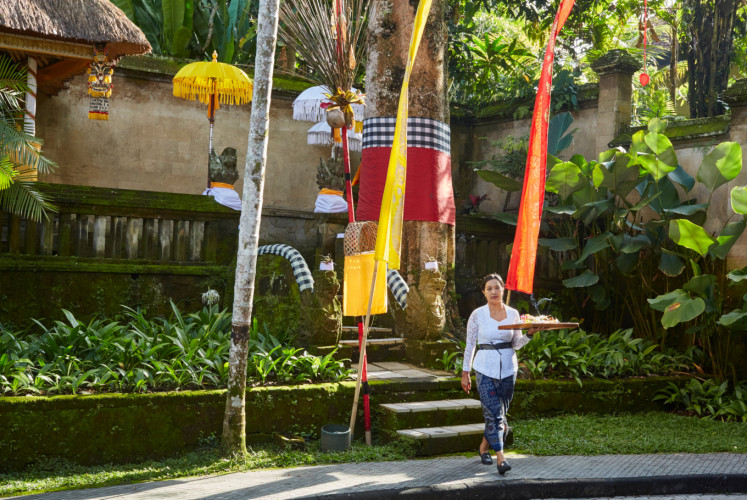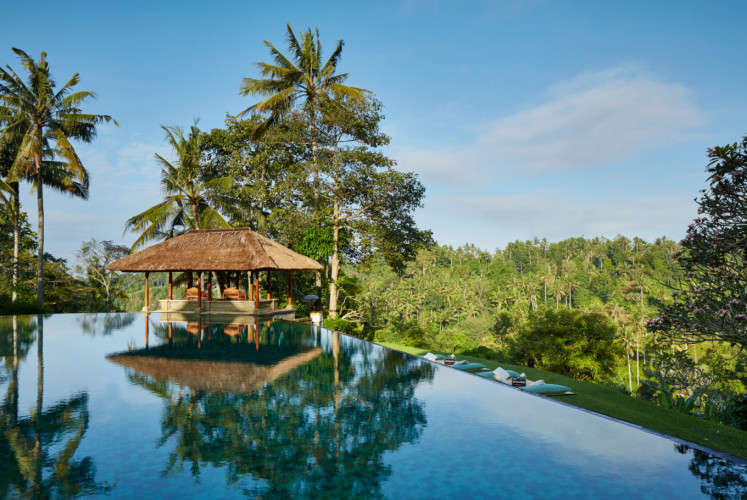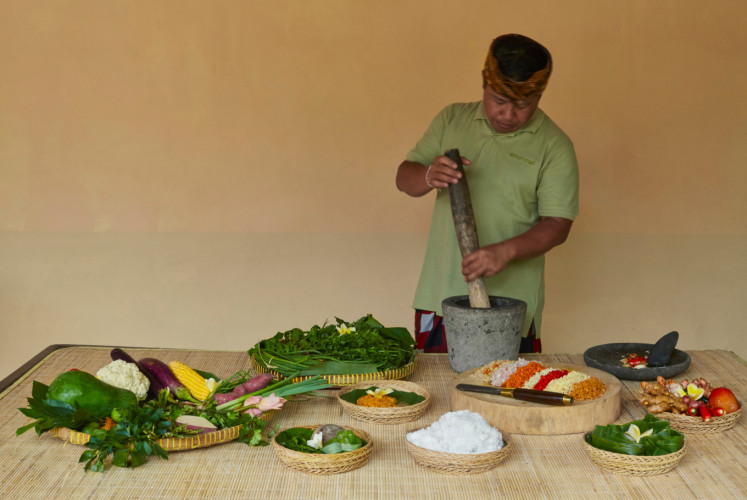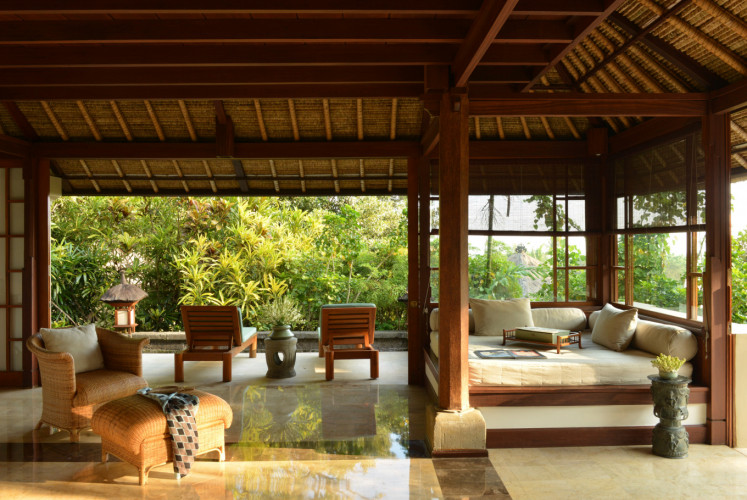Popular Reads
Top Results
Can't find what you're looking for?
View all search resultsPopular Reads
Top Results
Can't find what you're looking for?
View all search resultsDelving deeper into Ubud’s cultural, spiritual and natural sides in Amandari
Amandari boasts activities that allow guests to explore various sides of Ubud.
Change text size
Gift Premium Articles
to Anyone
Attending a full moon prayer known as the Purnama prayer was among the highlights of a recent trip to Bali.
Conducted once a month based on the Balinese calendar, Purnama is considered one of the most important ceremonies among Balinese Hindus to honor Sang Hyang Candra (the Lunar God).
Arranged by Amandari, the Purnama prayer was held at a temple located within the resort's complex in Ubud, Gianyar regency. Sash, sarong and other prayer materials like flowers and kwangen (offerings comprising flowers wrapped in banana leaf) had been prepared for me as well as other resort guests and staff who attended the ceremony that day.
A temple within the Amandari resort complex. (Amandari/File)Although I often celebrate Purnama with my Balinese family in Jakarta, the ceremony at the resort was anything but frivolous. A pemangku (priest) guided us throughout the process, starting from Panca Sembah (five-prayer sequence) to the distribution of holy water and bija (consecrated rice). Other female guests and I kneeled, while male guests sat cross-legged before the padmasana (shrine) during the ceremony.
Overlooking the Ayung valley and rice terraces, Amandari is located in Kedewatan village, an approximate 15-minute drive from Ubud. The majority of its activities are aligned with its philosophy of being part of a community.
The main infinity pool at Amandari overlooks the Ayung valley and rice terraces. (Amandari/File)The resort encourages guests to delve into the cultural aspects of Ubud by involving them in religious ceremonies in the neighborhood, including Purnama and Kajeng Kliwon (religious ceremony in which special offerings are made to avoid spirits from doing any harm); facilitating them to visit Gunung Kawi temple in Sebatu village, which has a holy spring; holding daily dance classes for local children at 3 p.m.; and running a cooking class on Balinese cuisine.
Read also: Ubud Food Festival 2019 to promote Indonesia's culinary identity
Guests can learn how to make Balinese cuisine from scratch in an Amandari cooking class. (Amandari/File)The cooking class was interesting as well. The guests were accompanied to a traditional market in the neighborhood to buy ingredients before traveling to a local's house to cook. Dishes made were lawar (vegetable salad with grated coconut topped with fried shallots) and sambal. The hard work paid off when the guests later got to enjoy the dishes.
Such activities may be part of most Indonesians' daily lives, but they offered me a new perspective of not taking things - even the simplest - for granted.
Karin van Zyl, the general manager of Amanbagh in India who currently supports Amandari, said, “We try to find temple and cultural spots that are not on the tourists’ paths, so then our guests could experience not the touristy Bali, but the traditional Bali.”
Apart from cultural aspects, travelers can also connect with Ubud’s spiritual side through spa treatments. One of the resort's most popular treatments, Village Spa Journey, merges the melukat (purification) ritual with traditional treatments. They also have the Balinese Spiritual Healing program in which people are taken to Made Lunas, a spiritual healer from Kemenuh village, who will guide them in exploring their oneself.
The Ayung suite, one of the suites at Amandari. The resort has 31 suites and one villa. (Amandari/File)
Sonia Bañuls Rovira, the regional spa and wellness director, said Ubud had always been a healing location that attracted people for specific reasons. “A lot of people come for soul-searching, spirituality and everything around is about yoga, meditation,” Rovira said. “In Amandari, we try to embrace the whole experience from the traditional perspective.”
Having operated for 30 years, the resort also boasts outdoor activities, among them the Ayung River Valley Trek that includes taking a trip to a seventh century temple near the river, Ayung River Rafting and trekking and biking in Jatiluwih village, which is a UNESCO world heritage site. (kes)

